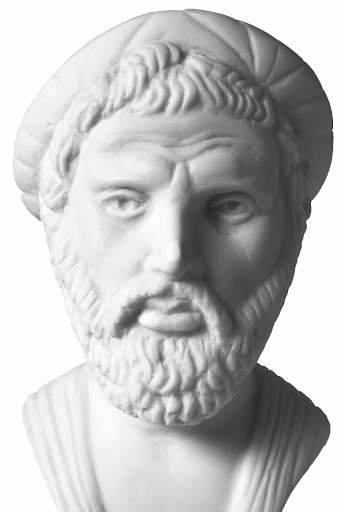Some history today, and a chance to slot in some mathematics!
We have probably all been taught the Pythagoras Theorem at school about right angled triangles : the square of the longest side is equal to the sum of the squares of the other two sides.
There is evidence that a version of the theorem was known by the Babylonians over three and a half thousand years ago, but it has been named after the Greek philosopher and mathematician Pythagoras who was born a thousand years later, in about 570 BC
So what has this to do with a plant-based diet?
It appears that Pythagoras was a vegetarian, as recorded by Eudoxus who wrote that “Pythagoras was distinguished by such purity and so avoided killing and killers that he not only abstained from animal foods, but even kept his distance from cooks and hunters”
To be honest, there are differing accounts of his diet, and all were written long after Pythagoras lived, but there is likely to be some element of truth in the story.
Interestingly, the theorem in its original form, a^2 + b^2 = c^2, was not the last word on the subject.
In the nineteenth century, Bernhard Riemann extended the theory to consider situations where the sum of the squares on the left is not equal to the right hand side, but possibly less or greater. At first sight this doesn’t seem to be very useful. After all, a theorem about right angled triangles can’t be changed to something different, can it?
In fact the extended theorem did have applications. For example when measuring right angled triangles laid out on the curved surface of the earth instead of flat pieces of paper.
But even this was not the end of the matter. In the twentieth century, the theory was applied to four dimensional curved spacetime. Without this modification, we would not have GPS satellite positioning, and Geocaching. Hmm, perhaps we should have left it as it was.
So although the theorem was true in Pythagoras’ day, it has changed significantly in the years since, yet without invalidating its original version.
Likewise, in many aspects of our lives, not least in our diets, we do not have a full understanding of what is best or possible. There will always be differences between individuals, places, and times. While discussions about diet are useful, we should not allow them to become so heated or blinkered that we do not hear what the other is saying.
Perhaps a lesson from the vegetarian Pythagoras is that we should always be learning, and having understood something, still be open to change, whoever we are.
